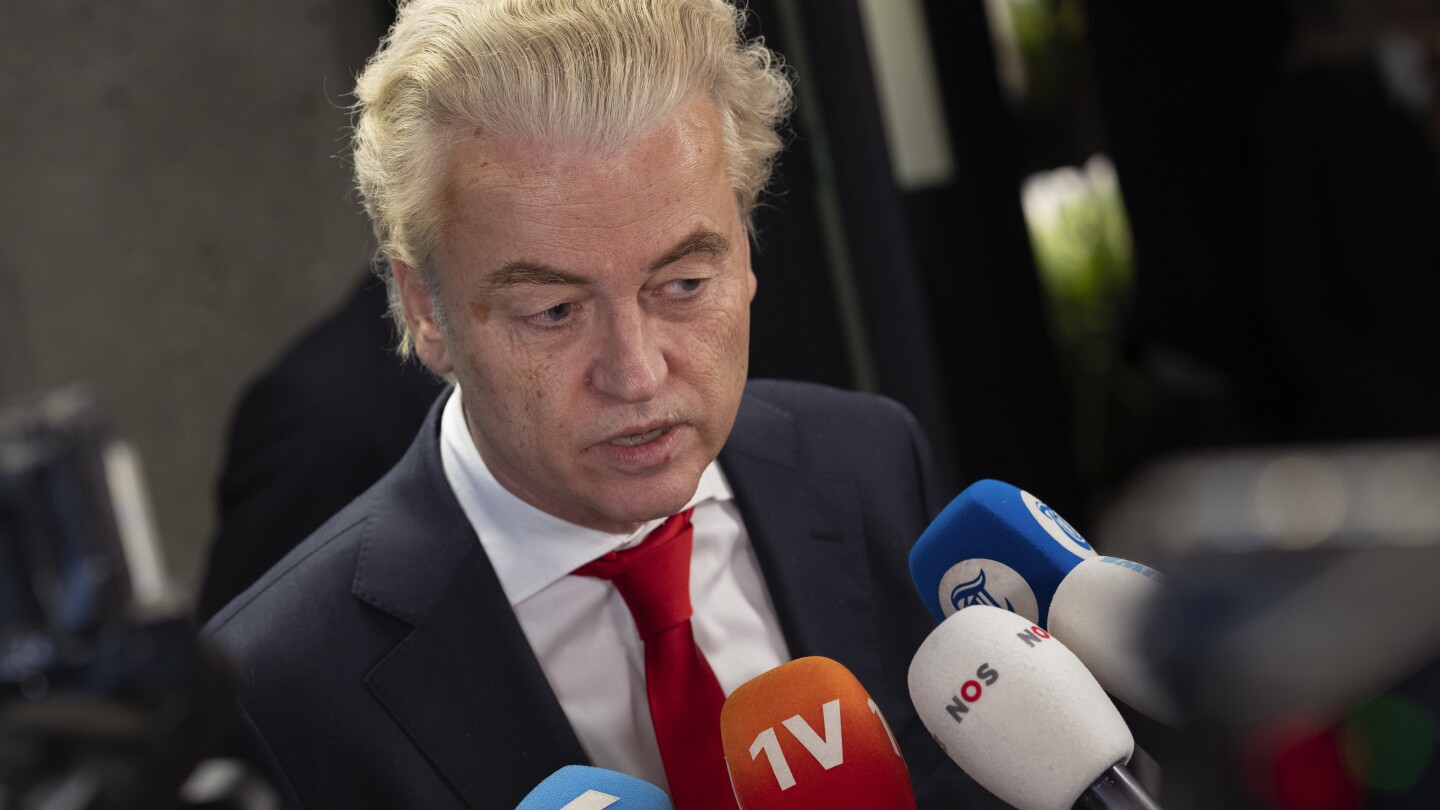THE HAGUE, Netherlands (AP) — Geert Wilders, whose anti-Islam, anti-immigration rhetoric swept him to a stunning victory in the November election, said Wednesday he doesn’t have the support of his prospective coalition partners to become the next Dutch prime minister.
Wilders took to X, formerly Twitter, to say that “I can only become premier if ALL parties in the coalition support that. That wasn’t the case.”
His comment came after media reported, citing unnamed sources, that a breakthrough in coalition talks announced Tuesday night was that the leaders of all four parties involved in drawn-out coalition negotiations would remain in parliament.
That sets up the likelihood of some sort of technical Cabinet made up of experts. While it now looks like Wilders will not lead the government, he and his Party for Freedom will remain the driving force behind the next administration.
Wilders did not immediately respond to an emailed request for comment. Other leaders involved in the talks also did not immediately comment.



This is the best summary I could come up with:
THE HAGUE, Netherlands (AP) — Geert Wilders, whose anti-Islam, anti-immigration rhetoric swept him to a stunning victory in the November election, said Wednesday he doesn’t have the support of his prospective coalition partners to become the next Dutch prime minister.
After two decades of trenchant opposition, Wilders seemed to have a shot at leading a nation that long prided itself on its tolerant society, but he has stepped aside in the interests of pushing through most of his agenda.
The rise of the populist far right in a polarized political landscape has been underway for years in Europe but Wilders’ election victory still came as a shock to the Netherlands and well beyond.
Wilders spent Monday and Tuesday in talks with the leaders of the center-right People’s Party for Freedom and Democracy, populist Farmer Citizen Movement and centrist New Social Contract.
The most recent such government was headed by Mario Draghi, the internationally respected former European Central Bank chief who was called on to shepherd Italy through the second half of the COVID-19 pandemic and reboot economic growth.
Despite his broad-based support, Draghi’s coalition collapsed in July 2022 and fresh elections were called that were subsequently won by Premier Giorgia Meloni of the far-right Brothers of Italy and her right-wing allies.
The original article contains 689 words, the summary contains 211 words. Saved 69%. I’m a bot and I’m open source!